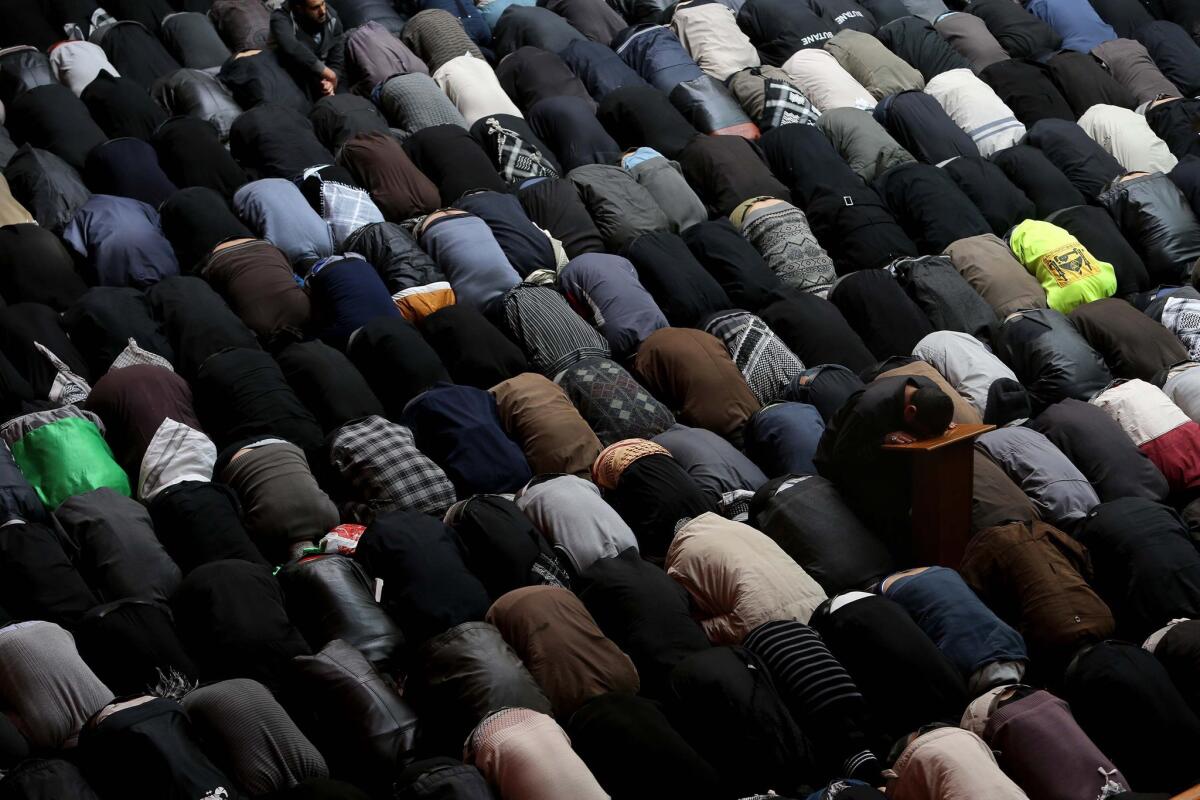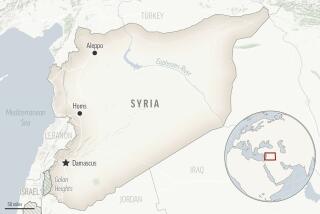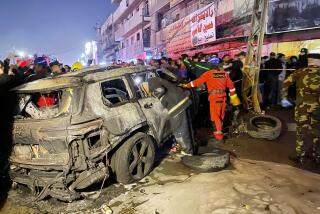U.S.-led warplanes hit militants in Syria and Iraq 27 times this week

U.S.-led warplanes launched 27 airstrikes against Islamic State militants in Iraq and Syria this week, officials said Friday.
The three-day attack by jets and drones was focused on militants in Syria’s second-largest city, Aleppo; the embattled Syrian city of Kobani and several cities in Iraq: Ramadi and Rutba to the west; Samarra and Mosul to the north.
In Aleppo and Kobani, U.S. officials claim to have destroyed Islamic State bunkers and fortified structures. In Iraq, the airstrikes destroyed armored vehicles as well as bulldozers and an excavator, they said.
President Obama has described the airstrike campaign as an effort to “degrade and ultimately destroy” Islamic State, which rose to prominence during the summer when its fighters crossed the border from Syria into Iraq and conquered large swaths of territory, including Mosul, one of Iraq’s largest cities.
As the militants bore down on Kurdish dominated areas of northern Iraq, the U.S. assembled a coalition of allies to mount the air campaign dubbed Operation Inherent Resolve.
The latest airstrikes came amid heightened security to the south, where millions were converging Friday on the Iraqi holy city of Karbala, about 50 miles south of the capital.
Shiite Muslim pilgrims traveled from across the country and neighboring nations — many on foot — to take part in a ceremony concluding the annual 40-day mourning period for an imam slain here alongside his family in ancient times.
Shiite religious events have long been a target for Sunni Muslim extremists. Despite local news reports Friday of a rocket attack on the outskirts of Karbala that killed a civilian and wounded three, Shiite Iraqis kept pouring into the city late in the day. Many headed south from Baghdad, closing up homes and businesses and leaving the normally chaotic city streets devoid of traffic and, as night fell, nearly abandoned.
Karbala officials said a record 19 million people had arrived to take part in the religious observance, or Arbaeen, according to Iraqi news channel Al Iraqiya. Arbaeen culminates Saturday.
Elsewhere in Iraq on Friday, the militia affiliated with radical Shiite cleric Muqtada Sadr declared its intention “to heed the call of jihad and defense of the holy sites” against Islamic State militants in Samarra, one of the disputed cities targeted by U.S. airstrikes.
Samarra lies 60 miles north of Baghdad, surrounded by Sunni militants whom pro-government forces have so far kept at bay. But Islamic State fighters have vowed to attack Shiite holy sites, and Samarra could be key.
Home to several Shiite shrines, the city is no stranger to attack. In 2006, a bomb tore through the dome of the Golden Mosque, one of Shiite Islam’s holiest sites: The adjacent shrine contains the tombs of imams descended from the prophet Muhammad and regarded by the Shiite sect as his rightful successors. A year later, another bomb destroyed the site’s minarets, deepening sectarian division.
“Everyone knows that our holy sites are a red line that cannot be crossed, and whoever thinks of damaging them is toying with his life,” said the statement issued by Sadr’s Peace Brigade militia.
Bulos is a special correspondent. Times staff writer Molly Hennessy-Fiske contributed to this report.
Follow @mollyfh on Twitter for news out of Iraq
More to Read
Start your day right
Sign up for Essential California for news, features and recommendations from the L.A. Times and beyond in your inbox six days a week.
You may occasionally receive promotional content from the Los Angeles Times.







